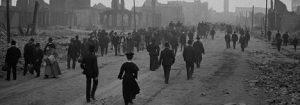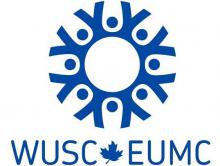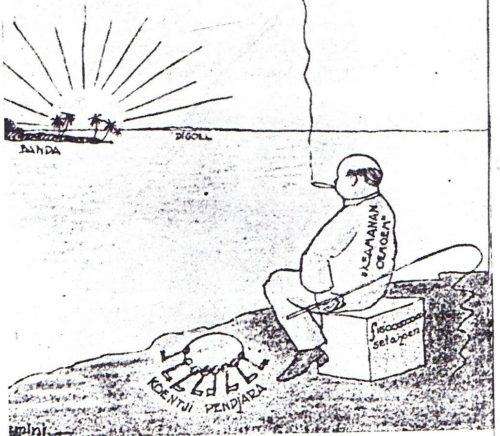In December 2022, CNHH member Dominique Marshall participated in a workshop showcasing learning by doing with library resources. In the six minutes that follow, she speaks about the fit between Archives and Special Collections‘ fonds of humanitarian archives and ‘experiential learning’ at the undergraduate and graduate levels.
She thanks her three partners in the ongoing Humanitarian Archival Rescue Project, Chris Trainor and Lloyd Keane of ASC, as well as Hunter McGill, veteran of Canadian International Development Agency; Nina Dore of Carleton’s Teaching and Learning Services, organized the event and kindly produced the clip.
Tag: Archives (Page 2 of 4)
On 16 September 2021, the Bill Graham Centre hosted an important forum entitled Lost and Fonds. Declassification of Government Documents in Canada. Originally available as a zoom presentation, the Bill Graham Centre has now made the entire forum available on Youtube at this link: Lost and Fonds: Declassification of Government Documents in Canada — Bill Grah Lam Centre (utoronto.ca)
Members of the CNHH will likely already know many of the key speakers, including retired archivist Paul Marsden who has been leading public advocacy work for improved access to government information. In addition to Marsden, the forum included rising academic stars, Susan Colbourn and Tim Sayle, along with Senator Peter Boehm, Ian Wilson, a retired National Archivist, and others. I spoke on historians and their duty to the documentary record, specifically drawing upon my own naval history research and the value of adopting an activist feminist lens to revisit prior research on operational intelligence to discover what I and other historians had missed in previous examinations of open Canadian government records on this topic.
Here is a summary of the speakers for the session:
2 pm: Welcoming Remarks: John Meehan
2:05: Paul Marsden on “Lost and Fonds”: the LRC article and next steps
2:15 Panel One: Chaired by Tim Sayle:
2:20: Transparency in the Making of National Security Policy: Thomas Juneau
2:30: The Historian’s Task and the Documentary Record: Isabel Campbell
2;40: History and the Policymaker: Sen. Peter Boehm
2:50: Panel Two: Chaired by Ian Wilson
2:55: ATIP and the Historian: Susan Colbourn
3:05: The View from LAC: Daniel German
3:15: The View from OIC: Allison Knight
3:25: Q&A: Moderated by John Meehan
The topic of access to Canadian government records is of interest to all historians as well as to members of the public and especially to advocates for refugees and other vulnerable groups. Without accurate and complete records, it is impossible to evaluate Canadian policies and their historical influences upon vulnerable peoples and others.
I hope that members of the CNHH will take the time to watch the Youtube video if they did not get a chance to join our zoom session. And also wishing all members the best as we struggle together during this time when historical research has become particularly difficult to undertake.
Isabel Campbell, Senior Historian, Directorate of History and Heritage, National Defence Headquarters, Ottawa, Ontario.
The Eleventh Bulletin of the CNHH has now been sent out to the membership. If you missed it, the complete PDF of the bulletin can be found here: Bulletin of the CNHH May 2021 FINAL
It has been more than a year since the last bulletin of April 2020. We hope that you are all well and that you will continue to send news, posts and announcements.
-
I. PANEL AND ANNUAL GENERAL MEETING
The annual CNHH sponsored panel on “Making Connections with the Public: Alternative Approaches to Learning History” will take place on Monday May 31, from 11:00 to 12:15 Ottawa time, virtually. The program of the CHA virtual conference is here: https://cha-shc.ca/_uploads/6092c3d816fd7.pdf
Continue readingby Elizabeth Reid
In the Winter of 2020, I had the opportunity to work with the communications department at the World University Service of Canada, or WUSC, to help sort through decades worth of documents, photos, and other forms of media stored in its Ottawa office. Shortly after the First World War, WUSC, under its original name, European Student Relief, was created in Switzerland to help support European students displaced by the war. Although the archives I had the chance inventory did not span all the period back to the 1920s, they helped to paint a picture of the work WUSC has done in the last several decades, and the aid they have been able to provide to students on an international level. While most of WUSC’s archives are held in an off-site storage facility, a small portion of them are still stored in their main office and needed to be inventoried.
Continue readingHistory Beyond Borders publishes e-dossiers on international history composed of documents and images from both government and non-government sources on international events during the 20th century, with a focus on relations between the developed North and the less developed countries of the global South. Continue reading
It has been almost a year since the last bulletin. We hope that you are all well and that you will continue to send news, posts and announcements.
I. CONGRESS AND WORKSHOP
Members of the CNHH panel on “Making Connections with the Public: Alternative Approaches to Learning History” prepared for the 2020 Annual Meeting of the Canadian Historical Association in London Ontario, which was cancelled due to COVID-19, have agreed to resubmit the same proposal for 2021 Annual Meeting of the CHA at the University of Alberta.
The Ninth Bulletin of the CNHH was sent out this morning for all subscribers. If you missed it, the bulletin in its entirety can be found below.

Assisting with the Researching of the Missionary Nursing at the West China Mission during World War II with I-CUREUS
A Mandarin-Speaking Undergraduate Student Becomes Research Assistant for Archival Work on Canadian Nursing during Wartime in China.
by Lui Xia Lee
Cross-posted with Trinity Western University.
These past eight months have been one of the most enlightening experiences of my university career. I was given an opportunity to be a Research Assistant for Dr. Sonya Grypma, Dean and Professor of Nursing at Trinity Western University in Langley, BC. Her current research project examines nursing during wartime in China and includes United Church of Canada missionary nurses (1937 to 1950). I was introduced to her by Dr. Marshall, who knew I wanted to do research in the history of China with my Mandarin language skills as well as an interest in research assistance work. This experience has taught me a lot about what it means to be a historian and the skills necessary to be one. This includes planning a trip to the United Church of Canada Archives, self-discipline, and digitizing material. Continue reading
For any who missed the Network’s most recent bulletin, it can be read in its’ entirety below. Continue reading







